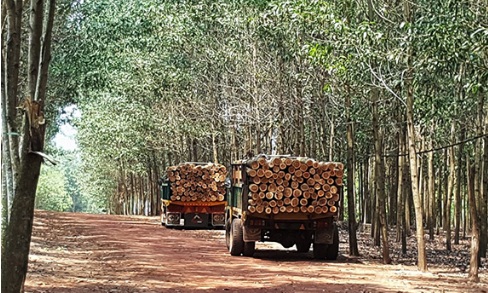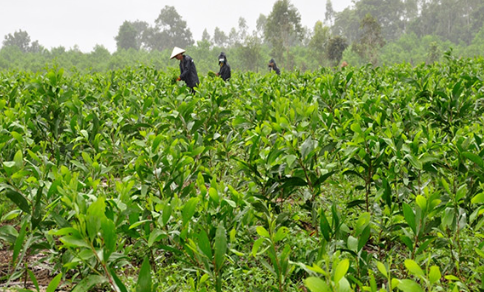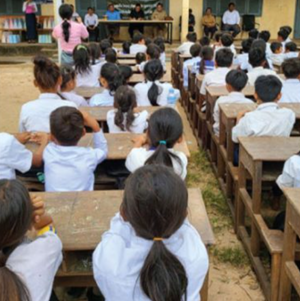Meeting our certified companies: CamAgra – leading sustainable forestry in Cambodia
In the heart of Cambodia’s forestry sector, CamAgra Investment Group Ltd. is setting a benchmark for sustainable forestry and responsible wood production.
Meeting our certified companies: CamAgra – leading sustainable forestry in Cambodia
20 August 2025 Meeting certified companies
In the heart of Cambodia’s forestry sector, CamAgra Investment Group Ltd. (CIG) is setting a benchmark for sustainable forestry and responsible wood production.
As the only fully integrated forestry operation in the country – from seedling to finished wood products – CIG’s PEFC certification represents not just compliance, but a deeply rooted commitment to environmental and social responsibility.
From nursery to export – a fully integrated operation

Founded in 2002, CIG manages 8,000 hectares of Acacia plantations, operating a self-contained cycle that begins with propagation at its own nursery.
Producing up to 500,000 Acacia seedlings per month, the company’s operations extend through harvesting, processing, and manufacturing lumber, veneer, and fuel wood – all under one roof.
“Every step, from seedlings to veneer, is done in-house,” says Dr Nir Atzmon, General Manager and Partner at CIG. “We are proud to be 100% legal and fully licensed, and PEFC certification adds another layer of credibility to our work.”

Why PEFC? – opening doors to global markets
CIG pursued PEFC certification for two key reasons: sustainability and market access. “Operating in an environmentally friendly, legal, and sustainable way is our ethos,” explains Dr Nir Atzmon.
“PEFC certification confirms our commitment and enables us to export to markets like the EU and USA, where certified wood is not just preferred – it’s often required.”
Following an in-depth review of available certification schemes, CIG chose PEFC because it aligned best with both their internal practices and Cambodia’s forest regulations.
Certification with impact
The PEFC audit, conducted by Bureau Veritas Vietnam, reviewed CIG’s plantations, factory, and administrative systems.
While the company was already operating with sustainable practices, the main challenge lay in improving tracking and monitoring systems – especially to ensure traceability from forest to final product.
“We enhanced our administration and control systems,” notes Dr Nir Atzmon. “Now we have full visibility of materials from the plantation to the factory, which also improves our inventory management.”
The certification has already paid off. With PEFC chain of custody certification in place, CIG has expanded into new product lines – outdoor deck flooring, wooden boards, engineered indoor flooring, fuel wood – and reached new international buyers who require certified materials.
“We’ve seen a growing interest from customers,” says Dr Nir Atzmon. “They ask to see the certificate. In their markets, certification is mandatory.”
Creating impact at home

CIG’s sustainability is not only environmental – it’s deeply social. The company provides jobs to 500 workers in rural communities, offering on-site housing, two daily school shifts for children, transport, healthcare, and food support.
“We don’t just create jobs, we create communities,” shares Dr Nir Atzmon. “And we are actively involved in giving back – donating seedlings and establishing forest plantations for local communes.”
These actions support PEFC’s requirements around maintaining ecosystem health and strengthening socio-economic functions of forests.
Biomass and the road to decarbonisation
One of CIG’s newest contributions to sustainable development is in the fuel wood sector. As Cambodia’s textile industry shifts toward low-carbon operations, certified biomass is increasingly in demand.
“PEFC ensures that our biomass fuel is not only renewable but responsibly sourced,” says Dr Nir Atzmon. “This certification gives confidence to global apparel brands and supports Cambodia’s climate goals.”
Advice for others
For companies considering certification, Dr Nir Atzmon is clear: “PEFC not only opens international doors, but it also builds trust and strengthens your sustainability story. I warmly recommend it.”